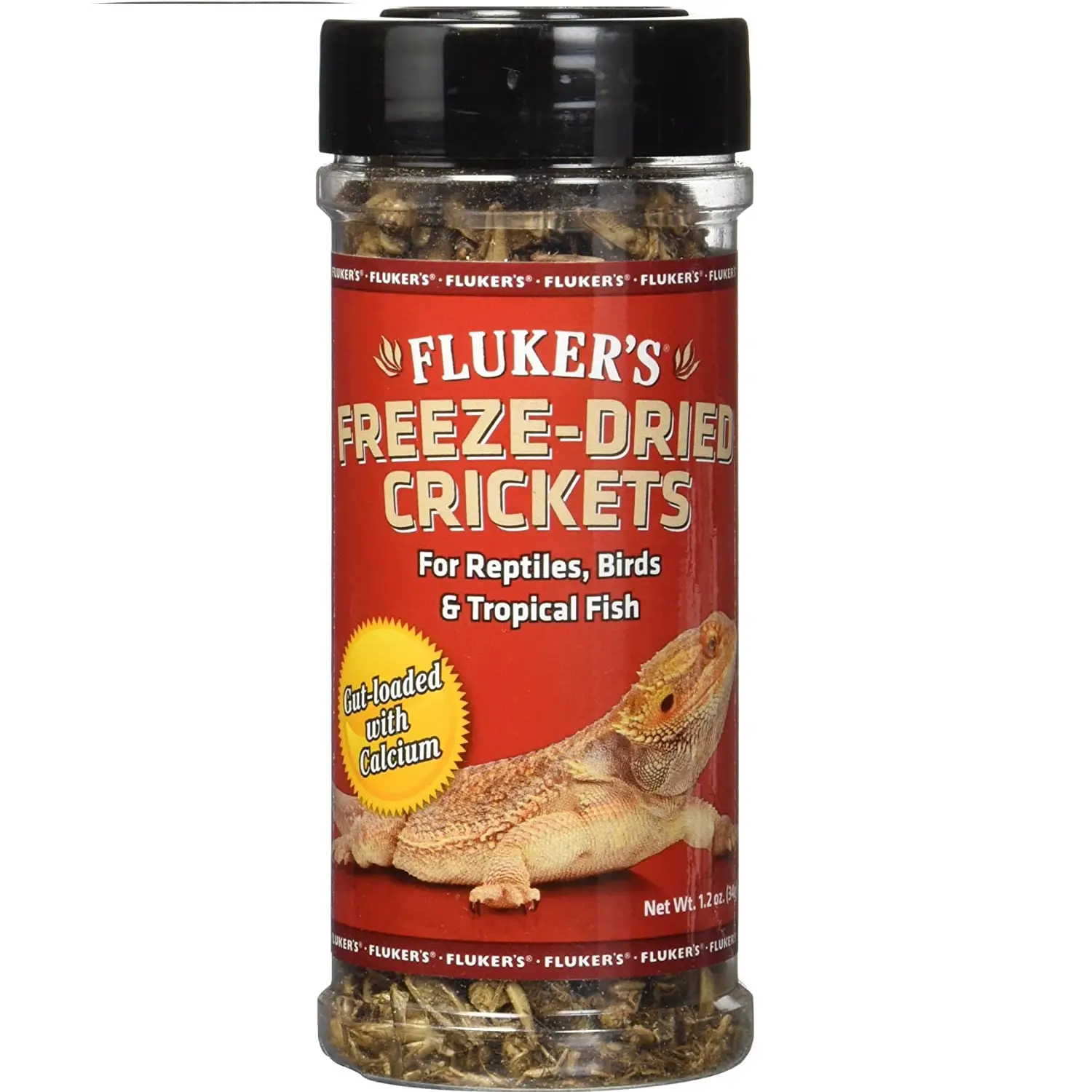
- Brand Fluker
- Item Weight 0.8 Ounces
- All Breed Sizes
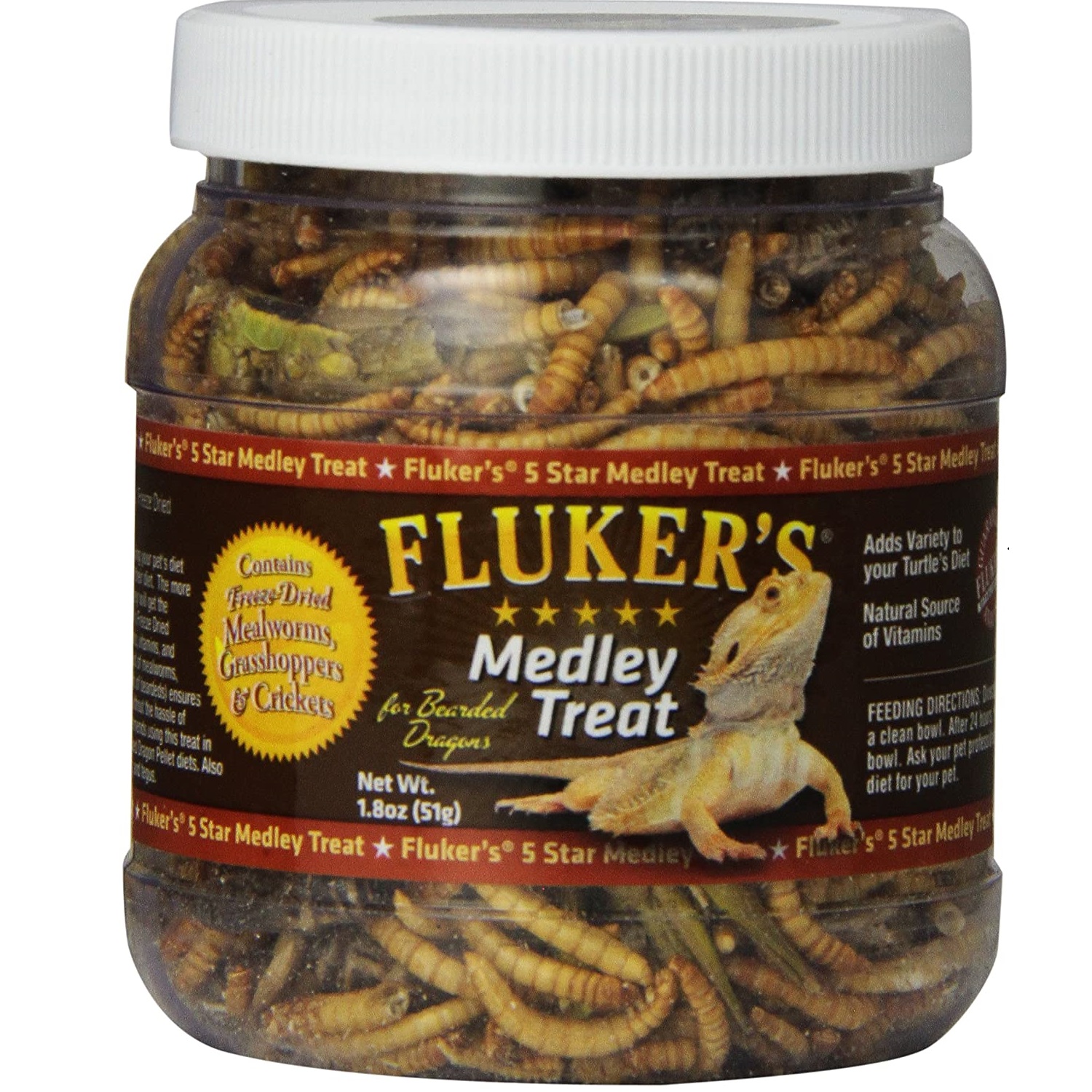
- Brand Fluker
- Item Weight 1 Ounces
- All Breed Sizes
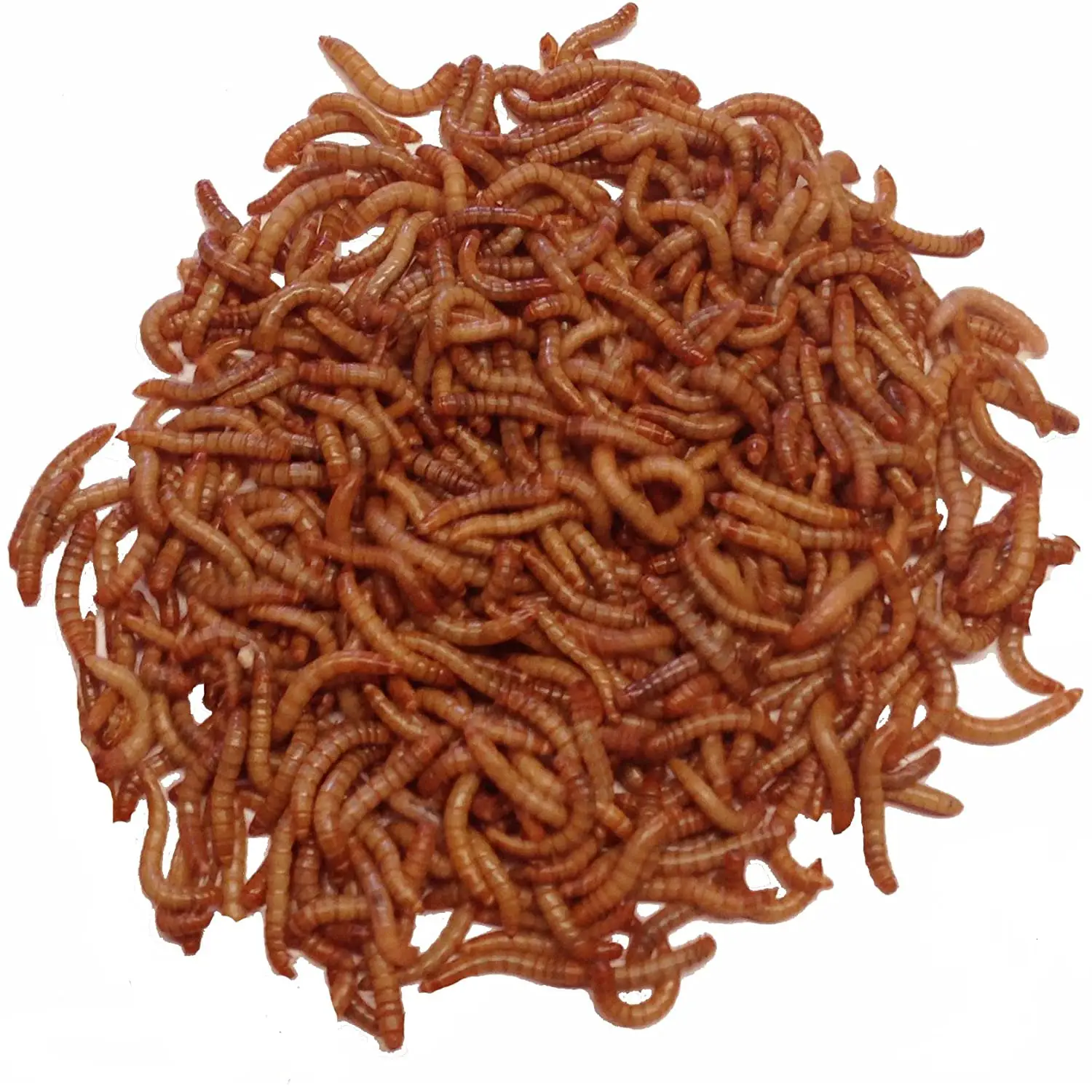
- Item Weight 1 pounds
- Vmfeeders
- Fish Food
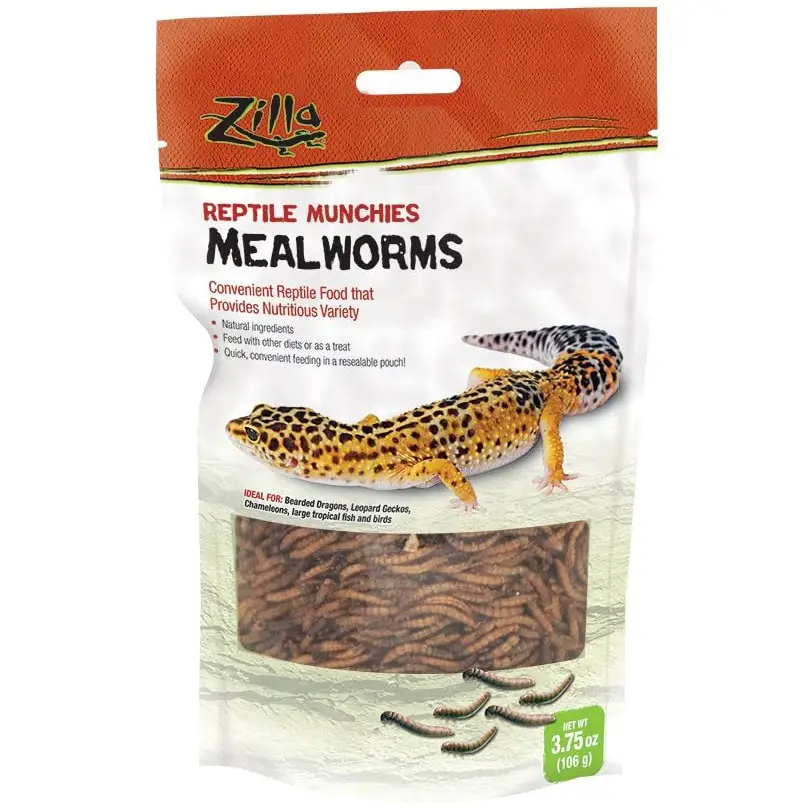
- Brand Zilla
- Flavor Other
- Adult
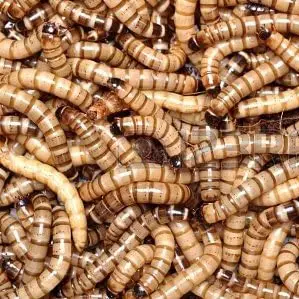
- Zophobas Morio
- Animal Specialties
- Kingworms
Choose the Best Insect for Bearded Dragon
Customer’s Choice: the Best Rated Insects for Bearded Dragons
2 users answered this survey. Please help us improve this review!
If you’re a bearded dragon enthusiast, you’re always looking for new and exciting insects to feed your pet. But with so many options available, it can be hard to know which ones are best.
In this comprehensive guide, we will discuss the benefits of different insects and recommend the best ones for your bearded dragon. We’ll also provide tips on how to choose the right insects and keep them healthy and nutritious.
So whether you’re just starting out or you’re looking for an upgrade, read on for the best insect choices for your bearded dragon.
Freeze Dried Crickets, 1.2oz
 Looking for a tasty and nutritious alternative to live insects for your reptiles, tropical fish, birds, hedgehogs or sugar gliders? These little critters are packed full of protein and make a great addition to any diet. Plus, they’re super easy to store and use – just add water and they’re ready to eat!
Looking for a tasty and nutritious alternative to live insects for your reptiles, tropical fish, birds, hedgehogs or sugar gliders? These little critters are packed full of protein and make a great addition to any diet. Plus, they’re super easy to store and use – just add water and they’re ready to eat!
These crickets are raised in the United States and include only the highest quality ingredients. [1]
Fluker’s Bearded Dragon Medley Treat Food
 This mouthwatering medley of proteins, fats, vitamins, and minerals is sure to please even the pickiest of dragons.
This mouthwatering medley of proteins, fats, vitamins, and minerals is sure to please even the pickiest of dragons.
Plus, it’s super easy to prepare – simply choose your dragon’s favorite fruits and veggies, mix them with the Medley Treat Food, and voila! A healthy and tasty treat that your dragon will love. [2]
1000ct Live Mealworms Grown by DBDPet, Reptile, Birds, Chickens, Fish Food
 Looking for a nutritious treat for your reptiles, birds, or fish? 1000ct Live Mealworms from DBDPet are the perfect option! These mealworms are grown with care and packaged well to ensure they remain fresh and lively.
Looking for a nutritious treat for your reptiles, birds, or fish? 1000ct Live Mealworms from DBDPet are the perfect option! These mealworms are grown with care and packaged well to ensure they remain fresh and lively.
Your pet will love munching on these nutritious insects, and you’ll love knowing they’re getting a healthy, protein-rich snack. [3]
If you’re looking for a nutritious treat for your reptiles, birds, or fish, 1000ct Live Mealworms from DBDPet are a great option.Zilla Reptile Food Munchies Mealworms for Pet Bearded Dragons
 Reptiles are unique and interesting pets that can provide years of enjoyment. But unlike traditional pets like dogs and cats, reptiles have very specific dietary requirements. Zilla Reptile Food Munchies Mealworms are a convenient and nutritious way to ensure your pet reptile gets the food they need.
Reptiles are unique and interesting pets that can provide years of enjoyment. But unlike traditional pets like dogs and cats, reptiles have very specific dietary requirements. Zilla Reptile Food Munchies Mealworms are a convenient and nutritious way to ensure your pet reptile gets the food they need.
Mealworms are a high-protein food that reptiles love, and they’re easy to digest too. Just sprinkle a few on your pet’s regular food, or offer them as a special treat. No refrigeration is required, so they’re perfect for on-the-go pet parents.
And because they’re rich in nutrients, they’re ideal for bearded dragons, leopard geckos, chameleons, and other reptiles. They can even be fed to large tropical fish and birds! For smaller sized animals, simply break the mealworms into pieces before feeding. [4]
1000 Live – Animal Specialties Brand – Superworms – Kingworms – Zophobas Morio
 The superworms are raised in a specially formulated bedding mix that is rich in protein, calcium, and vitamins, making them a highly nutritious snack for your furry friend.
The superworms are raised in a specially formulated bedding mix that is rich in protein, calcium, and vitamins, making them a highly nutritious snack for your furry friend.
Plus, the superworms are bred and grown exclusively by Animal Specialties at our facility in California, so you can be sure you’re getting the highest quality product available.
And with the 2-day expedited shipping, you can have your order delivered right to your door. Just be sure to select “hold for pick up” at the FedEx hub if the temperature is below 45 or above 85 degrees Fahrenheit. Live arrival is guaranteed. [5]
Buyer’s Guide
Age Matters
The best insects for bearded dragons will vary depending on the age of your dragon. If you have a baby or juvenile dragon, you’ll want to feed them smaller insects. As they grow older, you can start feeding them larger insects. Adult dragons can eat just about any size insect.
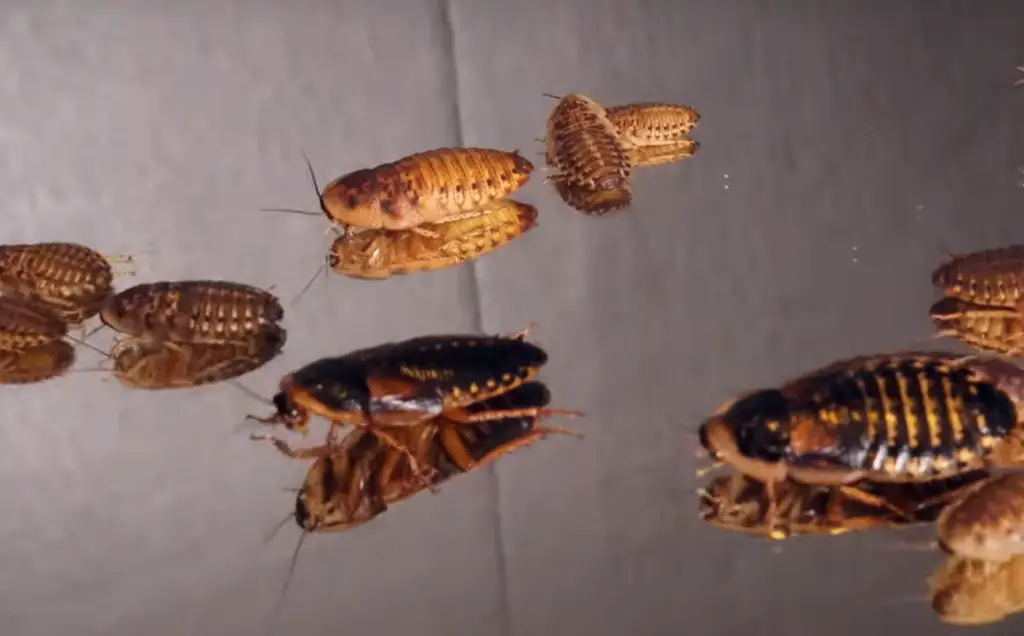
One thing to keep in mind is that baby dragons are still growing. They need a lot of protein to help them grow properly. That’s why it’s important to feed them insects that are high in protein. Some good options include crickets, mealworms, and wax worms.
As your dragon gets older, you can start introducing them to a wider variety of insects. This includes both smaller and larger insects.
One thing to keep in mind is that all insects should be gut-loaded before being fed to your dragon. Gut-loading is the process of feeding insects a nutritious diet so that they can in turn provide your dragon with the nutrients they need.
There are a few things to look for when choosing the best insects for your bearded dragon.
- First, you’ll want to make sure that the insects are an appropriate size.
- Second, you’ll want to make sure that they’re high in protein. And finally, you’ll want to make sure that they’re gut-loaded. [6]
Available Insects
There are a variety of insects available for bearded dragons. The most common are crickets, mealworms, and waxworms. However, there are many other types of insects that can be fed to your bearded dragon including: locusts, cockroaches, superworms, hornworms, and fruit flies.
When choosing what insects to feed your bearded dragon, it is important to consider the size, nutritional value, and frequency of feeding.
Crickets are one of the most common types of insects fed to bearded dragons. They are relatively easy to find and come in a variety of sizes. Crickets are a good source of protein and fat and should be dusted with calcium powder before being fed to your bearded dragon.
Mealworms are another common type of insect fed to bearded dragons. They are high in fat and should be fed in moderation. Waxworms are high in fat and should only be fed as a treat.
Locusts, cockroaches, and superworms are all good sources of protein. However, they should be fed in moderation as they can be high in fat. Horn worms and fruit flies are good sources of protein and moisture. They should be fed sparingly as treats.
Insects To Avoid
There are a few insects you’ll want to avoid feeding your bearded dragon. These include:
- Fireflies and lightning bugs – they can be poisonous if eaten.
- Caterpillars – they can contain harmful bacteria.
- Praying mantis – they may attack and eat your dragon.
- Termites and ants – they can bite.
- Scorpions – they can be poisonous.
Bearded dragons are carnivores, so they need a diet that consists mostly of meat. Insects are an important part of their diet and can provide them with the protein they need to grow and stay healthy. There are a variety of insects you can feed your bearded dragon, but there are also some you should avoid.
Fireflies and lightning bugs may be pretty to look at, but they can be poisonous if eaten. Caterpillars can also contain harmful bacteria. Praying mantis may seem like an interesting treat for your dragon, but they could attack and eat them instead! Termites and ants can bite, and scorpions can be poisonous, so it’s best to avoid all of these insects.
Stick to the insects on this list and you’ll be sure to keep your dragon happy and healthy. [6]The Best Insects To Feed Your Bearded Dragon
There are a variety of insects that make great food for bearded dragons. Some of the most popular include:
- Crickets are one of the most popular food items for bearded dragons. They are relatively easy to find and come in a variety of sizes. You can buy crickets live or frozen/thawed.
- Mealworms are another popular option for bearded dragons. They are slightly higher in fat than crickets but can be a good occasional treat. Mealworms come in live and frozen/thawed varieties.
- Waxworms are high in fat and should only be fed as an occasional treat. They are available live or frozen/thawed.
- Superworms are similar to mealworms but are slightly larger. They are also high in fat and should only be fed as an occasional treat. Superworms come in live and frozen/thawed varieties.
- Silkworms are a good source of protein and are also relatively low in fat. They are available live or frozen/thawed.
- Hornworms are another good source of protein and are also low in fat. They are available live or frozen/thawed.
As you can see, there is a wide variety of insects that make great food for bearded dragons. You can mix and match to find what your dragon likes best. [7]
How Often Should You Feed Your Bearded Dragon Insects?
As a general rule of thumb, you should feed your bearded dragon insects every day. However, there are a few things to keep in mind when deciding how often to feed them.
- First, consider the size of your bearded dragon. If they are still young and growing, they will need more food than an adult.
- Second, think about their activity level. If they are very active, they will need more food than a dragon that is not as active.
- Lastly, consider the type of insects you are feeding them. Some insects, like crickets, have more protein than others and should be fed less often.
In addition to how often you feed them, it is also important to consider how many insects you feed your bearded dragon. As a general rule, you should feed them as many insects as they can eat in one sitting.
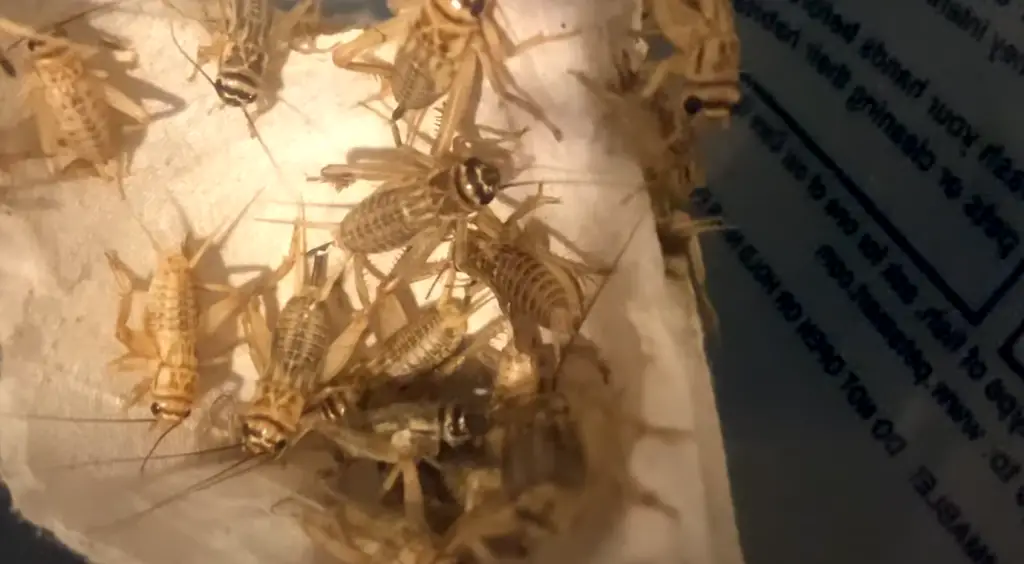
However, this will vary depending on the size of your dragon and the type of insect you are feeding them. If you are unsure how much to feed your dragon, it is best to err on the side of caution and feed them fewer insects. You can always increase the amount you feed them as they grow. [9]
Can You Alternate Feeder Insects?
Yes, you can. In fact, it’s a good idea to do so. Feeder insects vary in terms of their nutritional content. By rotating between different kinds of insects, you can help ensure that your bearded dragon gets all the nutrients it needs.
There are a few things to keep in mind when alternating feeder insects, though.
- First, make sure that the insects you’re offering are appropriately sized for your bearded dragon.
- Second, pay attention to how your bearded dragon reacts to different kinds of insects. Some reptiles are finicky eaters and may only want to eat certain kinds of insects.
If you do decide to alternate between feeder insects, consider offering a variety of insects that are rich in different nutrients. For example, you might offer crickets as a protein-rich option, mealworms as a good source of fat, and waxworms as a treat that’s high in calories.
Just remember to not overdo it with the treats! A bearded dragon’s diet should be mostly made up of insects that are high in protein and low in fat.
With a little trial and error, you should be able to find a rotation of feeder insects that your bearded dragon enjoys. And by providing a variety of nutrient-rich options, you can help ensure that your reptile stays healthy and happy. [9]
Where to Buy Quality Insects
There are a few places where you can buy quality insects for your bearded dragon. The first place to look is your local pet store. They should have a variety of insects for you to choose from. If they don’t have what you’re looking for, you can also check online retailers or breeders.
Another option is to catch your own insects. This is a great way to get live food for your bearded dragon, and it can be a lot of fun.
Not all insects are created equal, and some can actually be harmful to your bearded dragon.Once you have your insects, it’s time to start feeding them to your bearded dragon. Start by offering a few insects at a time and see how your beardie reacts. If they seem interested, you can offer more. If they’re not interested, try again another day. Bearded dragons can be fickle eaters, so don’t get discouraged if they don’t eat every insect you offer them.
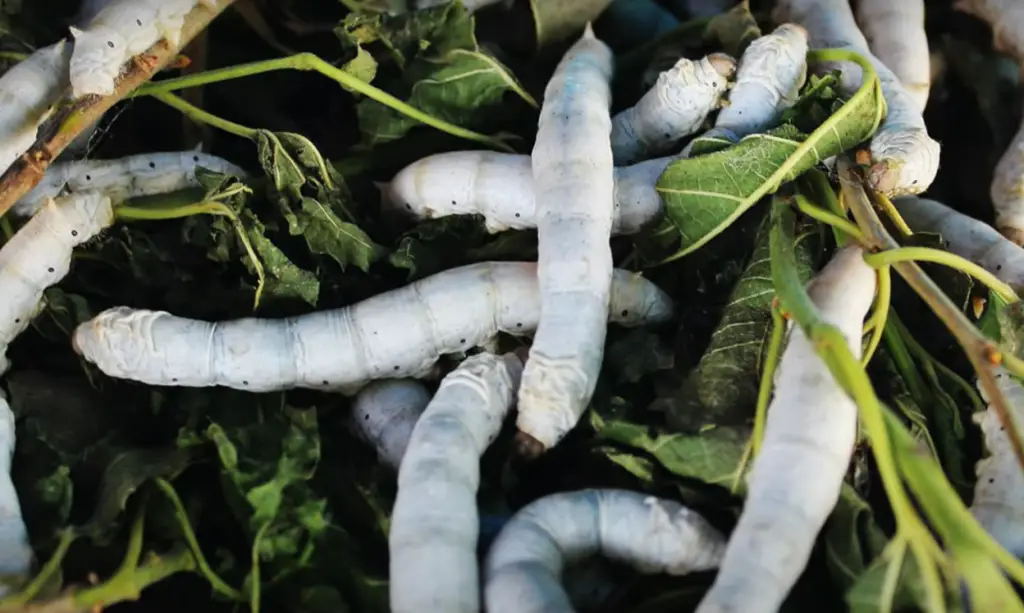
In general, it’s best to feed your bearded dragon live insects. This is because live insects are more active and will provide your beardie with more exercise. Live insects also contain more nutrients than pre-killed insects. If you do choose to feed your bearded dragon pre-killed insects, make sure they’re fresh and haven’t been sitting out for too long. [9]
FAQ
What Insects Should I Feed My Bearded Dragon Daily?
There is no one-size-fits-all answer to this question, as the best insects for bearded dragons will vary depending on the individual dragon’s size, age, and nutritional needs.
However, a good rule of thumb is to offer your dragon a variety of different insects each day, including both live and frozen/thawed options.
Some of the most popular insects for bearded dragons include dubia roaches, crickets, mealworms, superworms, and waxworms. Be sure to research each type of insect before feeding it to your dragon, as some may be higher in fat or contain other nutrients that could be harmful in large quantities.
In general, you should offer your dragon as many insects as it can eat in one sitting, and then remove any uneaten food from the enclosure. A good way to gauge how much food your dragon needs is to offer a small handful of insects per day for every inch of your dragon’s length.
If you are unsure about what kinds of insects to feed your dragon, or how many to offer, please consult with a reptile veterinarian for more specific advice.
What Bugs And Insects Can Bearded Dragons Eat?
There are a variety of insects that bearded dragons can eat, and they should make up the majority of their diet. The best insects for bearded dragons include:
Crickets are one of the most popular food items for bearded dragons, and for good reason. They are relatively easy to find and purchase, and most dragons seem to enjoy eating them. Crickets should be gut-loaded (fed a nutritious diet before being offered to your dragon) and dusted with calcium powder before being given to your dragon.
Mealworms are another popular food item for bearded dragons. They are high in fat, so they should only be offered as an occasional treat. Mealworms should be gut-loaded and dusted with calcium powder before being given to your dragon.
Waxworms are another high-fat treat that should only be offered to bearded dragons occasionally. Waxworms should be gut-loaded and dusted with calcium powder before being given to your dragon.
Phoenix worms are a nutritious food item that is becoming increasingly popular with bearded dragon owners. They are high in calcium and other nutrients, and most dragons seem to enjoy eating them. Phoenix worms should be dusted with calcium powder before being given to your dragon.
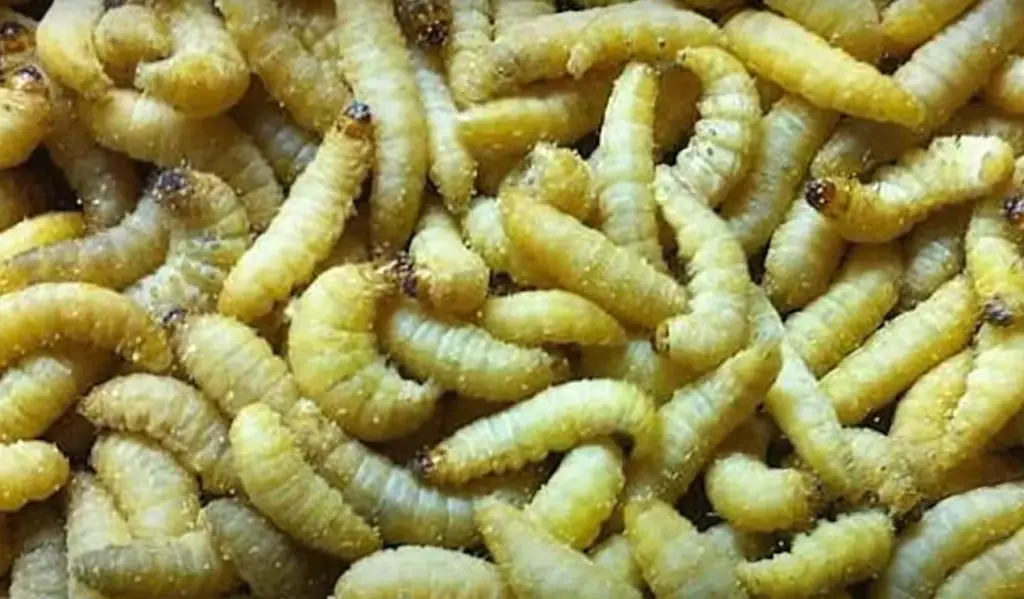
Silkworms are another nutritious food item that is becoming increasingly popular with bearded dragon owners. They are high in calcium and other nutrients, and most dragons seem to enjoy eating them. Silkworms should be dusted with calcium powder before being given to your dragon.
Hornworms are a nutritious food item that is often used as a treat for bearded dragons. They are high in calcium and other nutrients, and most dragons seem to enjoy eating them. Hornworms should be dusted with calcium powder before being given to your dragon.
Do Bearded Dragons Need Bugs Every Day?
No, they don’t need them everyday. However, most beardies will benefit from having a couple of days each week where they get to feast on bugs. This helps them to fulfill their natural hunting instincts, as well as providing them with much-needed protein and other nutrients.
Are Crickets or Mealworms Better for Bearded Dragons?
It depends! It really just comes down to what your bearded dragon prefers. Some will prefer crickets, while others will go for mealworms.
Another thing to keep in mind is that crickets are usually a bit cheaper than mealworms, so if you’re on a budget, crickets might be the way to go.
Mealworms, on the other hand, are a bit higher in fat than crickets, so if you’re looking to add a little extra weight to your dragon, mealworms might be the way to go.
Of course, there are other insects you can feed your beardie as well, such as roaches, locusts, and silkworms. But crickets and mealworms are by far the most popular choices.
What Is the Best Live Food for Bearded Dragons?
There are a variety of live foods that you can feed your bearded dragon. The best live food for your bearded dragon will be small insects that are easy for them to catch and eat. Some of the best insects for bearded dragons include crickets, mealworms, and waxworms.
You should avoid feeding your bearded dragon large insects as they can be difficult for them to catch and may cause your bearded dragon to choke. You should also avoid feeding your bearded dragon wild-caught insects as they may contain parasites that could make your bearded dragon sick.
When choosing live food for your bearded dragon, you should look for insects that are high in protein and low in fat. You can find live food for bearded dragons at your local pet store or online.
Once you have chosen the best live food for your bearded dragon, you will need to provide a home for your insects. You can do this by setting up an insectarium or by using a plastic container with holes punched in the lid.
Your insects will also need a food source. You can provide this by adding a piece of fruit or vegetables to their enclosure. You should also add a water dish to the enclosure so your insects can stay hydrated.
What Is a Bearded Dragon’s Favorite Food?
Bearded dragons are native to Australia and their diet in the wild consists of a variety of small insects and other invertebrates. In captivity, they can be fed a diet of commercial insect food or live insects.
The best insects for bearded dragons are those that are high in protein and low in fat. Insects that are high in fat can cause obesity in bearded dragons. Some of the best insects for bearded dragons include crickets, mealworms, superworms, and waxworms.
Crickets are one of the most popular food items for bearded dragons. They are high in protein and low in fat. Crickets should be dusted with a calcium powder before being offered to your bearded dragon.
Mealworms are another popular food item for bearded dragons. Like crickets, they are high in protein and low in fat. Mealworms should also be dusted with a calcium powder before being offered to your bearded dragon.
Superworms are a type of beetle larva that is growing in popularity as a food item for bearded dragons. They are slightly higher in fat than crickets and mealworms but are still a good source of protein. Superworms should be dusted with a calcium powder before being offered to your bearded dragon.
Are Dubia Roaches Better Than Crickets?
Both have their pros and cons. For example, dubia roaches are less likely to escape than crickets, but they’re also more expensive. Crickets are more active, so some dragons may prefer them, but they can be noisy. Ultimately, it’s up to you and your dragon to decide what type of insect you want to feed them.
If you’re looking for a more in-depth answer, check out our blog post about the best insects for bearded dragons. We go over everything you need to know about feeding your dragon the right way.
How Many Bugs Should a Bearded Dragon Eat a Day?
The number of insects a bearded dragon should eat in a day depends on its size and age.
If you’re unsure how many bugs to feed your beardie, err on the side of too few rather than too many – it’s better to underfeed them a little than overfeed them and risk obesity.
One way to measure how much your bearded dragon should be eating is by offering them as many insects as they can eat in 15 minutes, then removing any uneaten bugs. This ensures that they’re getting enough to eat without overfeeding them.
Another method is to feed them according to their weight – offer them about 20-30% of their body weight in insects per day. For example, if your bearded dragon weighs 100 grams, they should eat approximately 20-30 grams of insects per day.
If you find that your bearded dragon isn’t eating as many insects as they should, try offering them a variety of different types of insects to see if that entices them to eat more. Some beardies are pickier than others and may prefer certain types of bugs over others.
Whatever method you choose, make sure to keep an eye on your bearded dragon’s weight and overall health to ensure that they’re getting enough to eat.
Can I Feed My Bearded Dragon Bananas?
Yes, bearded dragons can eat bananas! In fact, bananas are a great source of dietary potassium for bearded dragons. However, you should only feed your bearded dragon banana slices as occasional treats. Bananas are high in sugar and should not make up a large part of your beardie’s diet.
When feeding your bearded dragon banana slices, be sure to remove the peel and chop the fruit into small pieces. You can offer your beardie banana slices fresh or frozen. Some bearded dragons enjoy eating frozen banana slices as a cooling treat during hot summer days.
If you’re looking for more ideas on what fruits and vegetables to feed your bearded dragon, check out our comprehensive list of beardie-safe foods.
How Many Dubia Roaches Should My Bearded Dragon Eat?
The answer really depends on the size of your bearded dragon. A good rule of thumb is to offer about 12-20 roaches per feeding for an adult dragon. For juveniles, you can start with around six and work your way up as they grow. If you’re ever in doubt, it’s always better to err on the side of too many rather than too few.
One thing to keep in mind is that dubia roaches are very high in fat. So if you’re offering them as part of a regular diet, you’ll want to limit the number of feedings per week accordingly.
Useful Video: Bearded Dragon Feeders | with LizardGuru
Conclusion
As you can see, there are a variety of insects that can be fed to bearded dragons. It is important to do your research to ensure that the insect you choose is safe and nutritious for your pet. With a little trial and error, you will be sure to find the perfect diet for your bearded dragon!
We hope this guide has been helpful in choosing the best insects for your bearded dragon. If you have any questions or would like to share your experiences, please leave a comment below! As always, thanks for reading!
References:
- https://www.amazon.com/Flukers-1-2-Ounce-Freeze-Dried-Crickets/dp/B0002DRJDG
- https://www.amazon.com/Fluker-Labs-SFK72021-Bearded-1-8-Ounce/dp/B004HSQRI0
- https://www.amazon.com/1000ct-Mealworms-Reptile-Birds-Chickens/dp/B00IYNTSXK
- https://www.amazon.com/Zilla-Reptile-Munchies-Mealworm-3-75-Ounce/dp/B00NOLTBG6
- https://www.amazon.com/Animal-Specialties-1000-Live-Superworms/dp/B079PMJKHZ
- https://reptilesmagazine.com/the-best-guide-to-bearded-dragon-nutrition/
- https://reptilesupply.com/blogs/bearded-dragons/best-feeder-insects-for-bearded-dragons

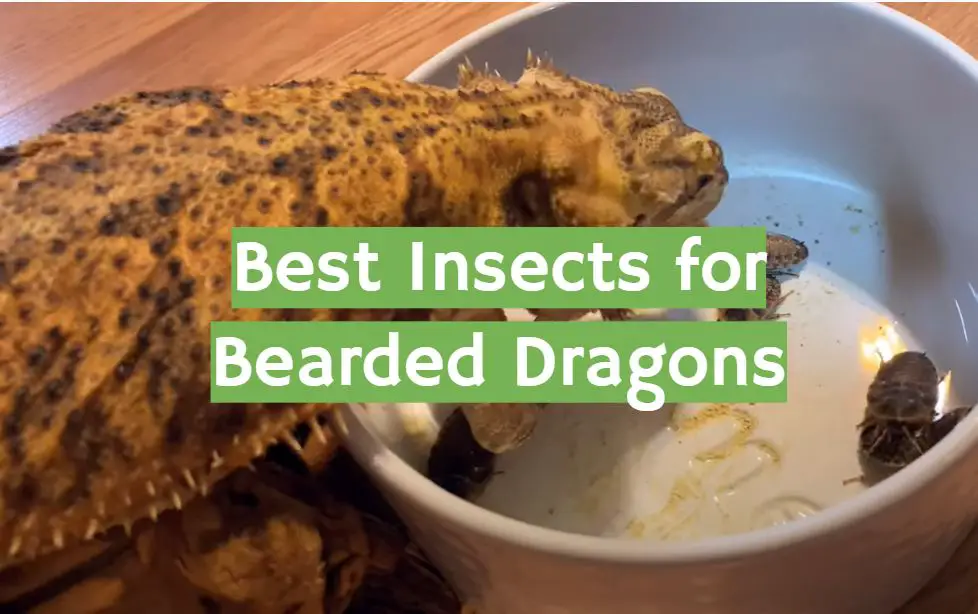
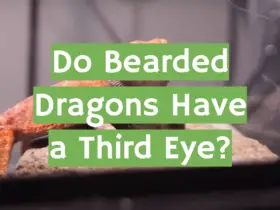
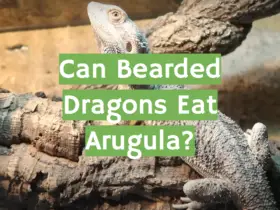
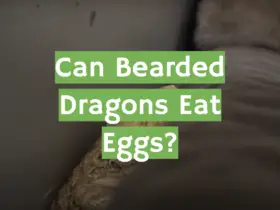
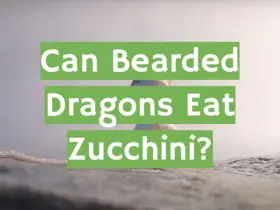
Leave a Review